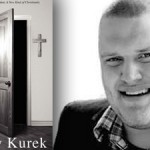 ANOTHER CONTEST!I have another book to give away. Just make a comment and your name will be entered into the draw for a free new copy of this hardcover book. I’ll close the contest tomorrow night, Friday, midnight my time (Atlantic Time). Again, thanks to Zondervan for this opportunity. This week’s book is 3 Seconds: The Power of Thinking Twice
ANOTHER CONTEST!I have another book to give away. Just make a comment and your name will be entered into the draw for a free new copy of this hardcover book. I’ll close the contest tomorrow night, Friday, midnight my time (Atlantic Time). Again, thanks to Zondervan for this opportunity. This week’s book is 3 Seconds: The Power of Thinking Twice, by Les Parrott, PhD., founder of the Center for Relationship Development at Seattle Pacific University. He has published several books and is a sought-after speaker to Fortune 500 companies and others.
I was skeptical of the book as I read it because, again, it falls under the very popular category of self-help for personal and business success, where I think there’s lots of garbage floating around. It also felt very reminiscent in many ways to the last book I reviewed, Holy Discontent: Fueling the Fire that Ignites Personal Vision, by Bill Hybels, and I’m not crazy about that book. (By the way, I want everyone to know that when I review these books, I realize that I am critiquing the work of my brothers and sisters. I wish to maintain respect and love for all people, but let us agree that our works and words must be open for analysis and criticism. I would love to have lunch with Hybels or anyone else I review, and I’m sure it would be an enjoyable one… for me anyway.) There are some things about this book I enjoyed and benefited from. He encourages us to not fall into the trap of following our first overwhelmed response to a problem and give up, but to think again and work for a solution to the challenge. So, let’s say our first response to a problem is, “There’s nothing I can do about it!” Parrott instructs us to replace this first impulse with the second: “I can’t do everything, but I can do something!” It has some good advice and is peppered with quotes and stories. We are encouraged to do what we love to do. One quote:
Follow what you love!… Don’t deign to ask what “they” are looking for out there. Ask what you have inside. Follow not your interests, which change, but what you are and what you love, which will and should not change.
Some good stuff. But my problem with books like these is the whole cause and effect issue. We are so confident that if we do a certain thing we will achieve our desired results. We’ve become like gods of our own lives. “I will do this and therefore get this!” It is the same philosophy behind the health/wealth gospel that runs rampant in the churches, only we apply it to business as well. To his credit, Parrott tells the story of Wetherill Associates, Inc., a company founded by Richard Wetherill who believed that right action would get right results. To this day, Wetherill inists that:
We do not try to make profits or avoid losses. Instead we try to take “right action” in the best way that we know; the profits are a natural by-product.
Reminds me of Gandhi, who I think was closer to the truth when he said that we need to trust God for the right results of our right actions. I think it was Barth who argued over and over that to be so confident of our plans, to be so sure of the effects of our causes is the ultimate in human arrogance. So, in a nutshell, I like most of what Parrott has to say. I just wish that this whole field would be a little more aware that this kind of philosophy only works in a part of the world where humanity seems to reign supreme over all and has the rare luxury of guaranteeing its own success.











